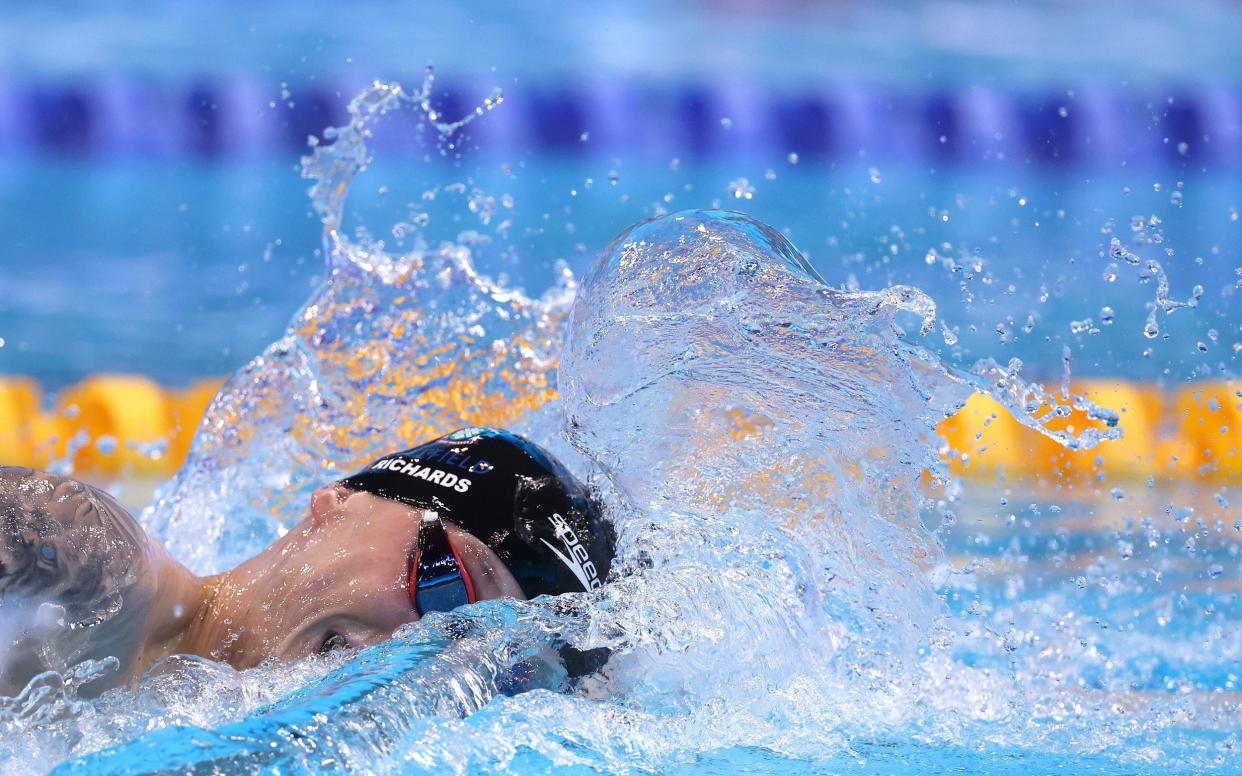Team GB swimmer demands cash for gold at Olympics

Great Britain’s history-making swimmers have called for prize money across Olympic sport after track and field stars were offered $50,000 (£39,800) per gold in Paris this summer.
Matt Richards, who was part of Britain’s 4x200m freestyle relay-winning team in Tokyo and will be competing in six events this summer, highlighted the International Olympic Committee’s vast revenues and how some athletes go bankrupt in pursuit of their sporting dream.
Tom Dean, the reigning double Olympic gold medallist from Team GB’s most successful ever swimming team, said that it was the athletes who were “doing the work that people are wanting to watch” and pointed out that the Olympics had already moved on from their strictly amateur origins.
Duncan Scott, who became Britain’s most decorated Olympian at any single Games in Tokyo, said that “there are so many superstars in our sport who don’t get the limelight they deserve” and stressed that something needed to change financially.
“When I tell people that we don’t receive any prize money from winning Olympic gold medals that is always a shock and a surprise,” said Dean.
The decision to pay track and field stars was made by World Athletics, of which Lord Coe is the president, rather than the IOC, who distribute money to governing bodies and brought in some $7.6 billion (£6.06 billion) during the last cycle to Tokyo 2021.
According to media reports last year of its financial accounts, the ‘salaries and short term benefits’ of members of the IOC’s executive management also totalled some $13.95 million (£11.5 million) in 2021 and $11.65 million (£9.6 million) in 2020.
“My position is that the Olympic Games is incredible, winning Olympic gold is incredible,” said Richards. “That’s that’s why we do it, knowing we’re not going to make any money off the back of it. Do I think that’s necessarily right? Probably not when the Olympics is making the kind of revenue that it makes. It’s crazy money. Big business.
“When you look at that, you go: ‘Well, it makes a lot of money but then the athletes aren’t actually going to be able to win any of that’. If the IOC steps up and [says] ‘we’ll just put a blanket amount, this is how much the medals are worth across all sports’ that would make a lot of athletes a lot happier.”
Richards also pointedly highlighted the competing spectre of the Enhanced Games, a concept where athletes are being offered as much as $1 million (£800,000) for races where participants will be permitted to take banned drugs.
“We have these Enhanced Games being planned, offering stupid money to athletes to go and become drugs cheats and go swim events like that,” he said.
“To protect the sport, and to protect the Olympics and protect everything that’s great about what we do, the governing bodies like World Aquatics and the IOC are going to have to start putting some money up to the athletes to keep them from straying over to things like that.”
Dean also pointed out that swimmers had put just as much into their sports as athletes. They are generally also the most watched Olympic sport in the first half of any Games.
‘They’re struggling to put food on their tables’
“Obviously people don’t do it for money but when you are seeing your other Olympic counterparts who are going to be earning a paycheck, it’s a pretty obvious contrast,” he said.
“I don’t think you will find a single swimmer who will disagree with the statement that more money should be given towards the athletes who are performing at this stage and who have given so many years of hard work to be where they are and performing in front of millions of people.”
Richards stressed that elite British swimmers were fortunate to have financial backing from the National Lottery via UK Sport but pointed out the various levels of financial help to train full-time. “We do get funding to help support our day-to-day life,” he said. “But, even in swimming, there are athletes that are on the lower bands of UK Sport funding, who are struggling to make ends meet every week. They’re struggling to put food on their tables and that’s just for them, let alone if they’ve got families.
“You see stories of athletes at the Olympics essentially going bankrupt to try and afford to be able to go. And when the Olympics makes as much money as it does, I just don’t think that’s right.
“There needs to be some conversations about how we better support athletes at the Olympics because it’s not an amateur Games anymore. There are basketball players there who are earning hundreds of millions a year. Footballers, tennis players, golfers, in the same position.”
World Aquatics did consider offering prize money ahead of the Tokyo Games in 2021 but ultimately decided to put more money into their own events.
The IOC says that it already redistributes 90% of all its income, particularly to National Olympic Committees like the British Olympic Association and International Federations like World Athletics.
It is from its share of broadcast revenue that World Athletics has decided to become the first federation to directly offer prize money to its competitors. “Every day, the equivalent of $4.2 million [£3.38 million] goes to help athletes and sports organisations at all levels around the world,” said an IOC statement. “It is up to each International Federation and National Olympic Committee to determine how to best serve their athletes and the global development of their sport.”
